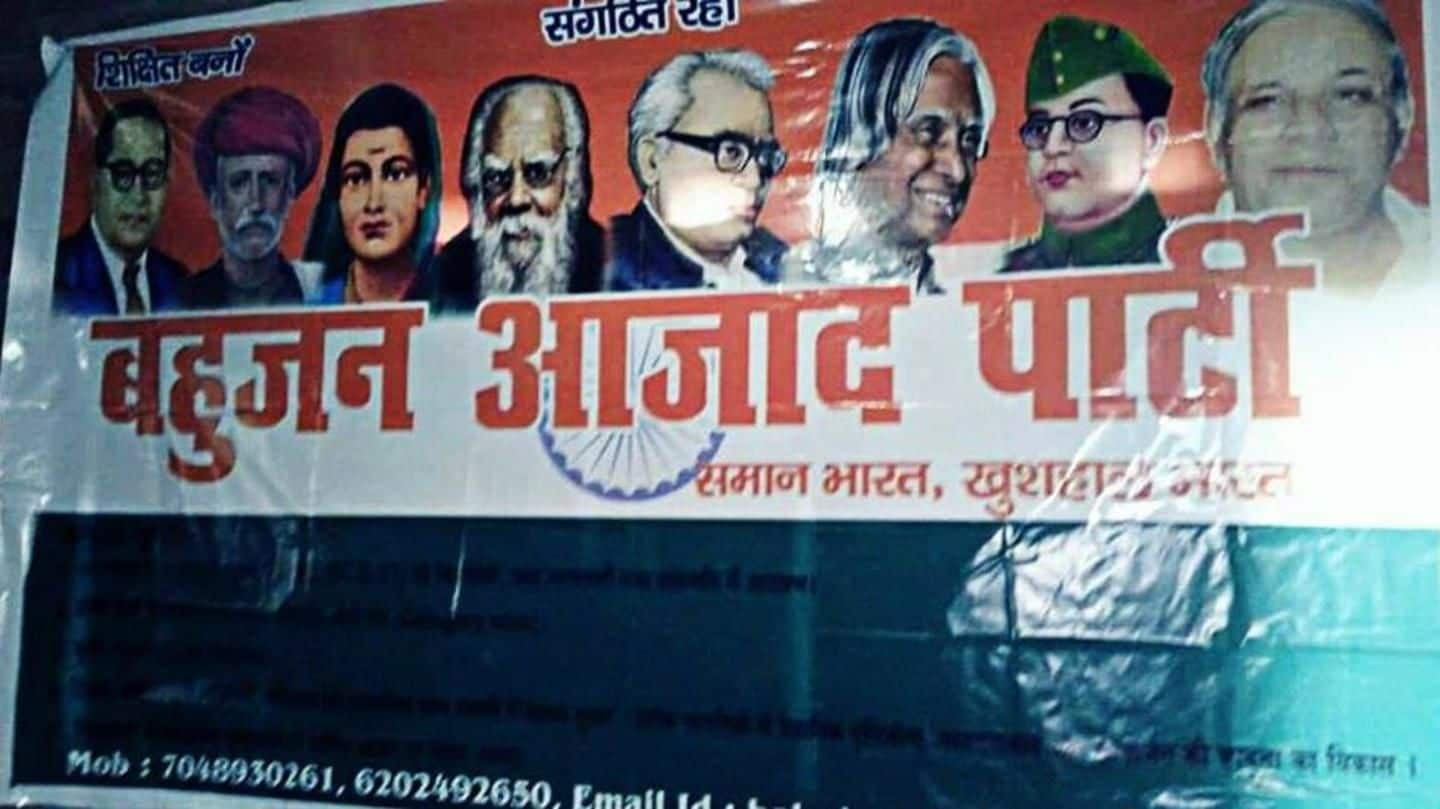
50 IITians quit jobs for BAP, a political-party for backward-classes
What's the story
Fifty IIT alumni have quit their jobs to form a political party to fight for backward classes.
The goal of the Bahujan Azad Party (BAP) isn't to defeat any particular "rival," but only to "uplift the marginalized."
And since most of them come from such classes, they understand issues better, they said.
If all goes well, BAP will face its first election in Bihar-2020.
President
'BJP can only give soap-and-oil, not rights, representation, respect'
The group is being led by Naveen Kumar, the president-in-waiting, an IIT-Delhi graduate.
Kumar lists the issues he plans to fight for: equal distribution of resources, reservation in various sectors, implementation of the Sachar committee report for minorities, and women's "ultimate empowerment," i.e. financial independence.
But BJP and Congress are keeping these classes away from quality education, he said, adding, "We aren't vote banks."
In their words
'90% of the country still needs support and a voice'
Working with Kumar are Sampath Kumar Banoth, IIT-Kharagpur and IIT-Roorkee alumnus, and Vikrant Vatsal from IIT-Delhi.
Both raised similar concerns. "It's been 70 years of independence, still our citizens are forced to stay in forests and be manual scavengers," Banoth said.
Vatsal said his own experience of discrimination motivated him to work to "eradicate this Manuwadi system, which is based on inequality and injustice."
Incident
The incident that turned around Vatsal's life
Vatsal recalled how when he was 11, he was returning from school one day in Bihar's Muzaffarpur, and was walking towards a hand-pump when an 'upper caste' man started abusing him.
"They denied me water because I belong to the OBC category and the pump belonged to 'upper' caste people," he said.
And that was only the first of several experiences.
Contribution
Their work till now
Most of these IITians are young (the average age is 27), but that doesn't mean they have been sitting idle.
Some like Kumar and Vatsal have been running the Mauka Foundation, an NGO that coaches underprivileged kids at Re. 1 a month, while few are involved in other campaigns.
But they believe it isn't enough to bring about an actual change, and hence politics.
Status
50 are working full-time, but much outside support too
These former IITians aren't alone. Apart from the 50 who are working full-time for BAP, "there are some civil service officers supporting us from the outside, working like a think tank," Kumar said.
Then there are social activists who aren't affiliated, but are spreading the word.
For now, they have applied for registration with the EC, and are expecting a response within 15 days.
Plans
So what's the plan for now?
BAP knows what it doesn't want to do: "do a hurried job and end up being reduced to just a small political outfit with big ambitions."
So the first goal is the 2020 Bihar elections, and then other states like Rajasthan and West Bengal and Lok Sabha polls.
"After registration, we'll form small units which will start working on the ground," Kumar said.
Editor's take
Will BAP be what AAP promised to be but couldn't?
Five years ago, AAP, which also claimed strong IIT links, created a splash by forming the Delhi government after its first election. The next time, it won 67/70 seats.
But over time, the few leaders AAP can boast of, including Arvind Kejriwal, got involved in petty politics and lost their way.
The BAP should learn and ensure it doesn't fall into similar trappings.